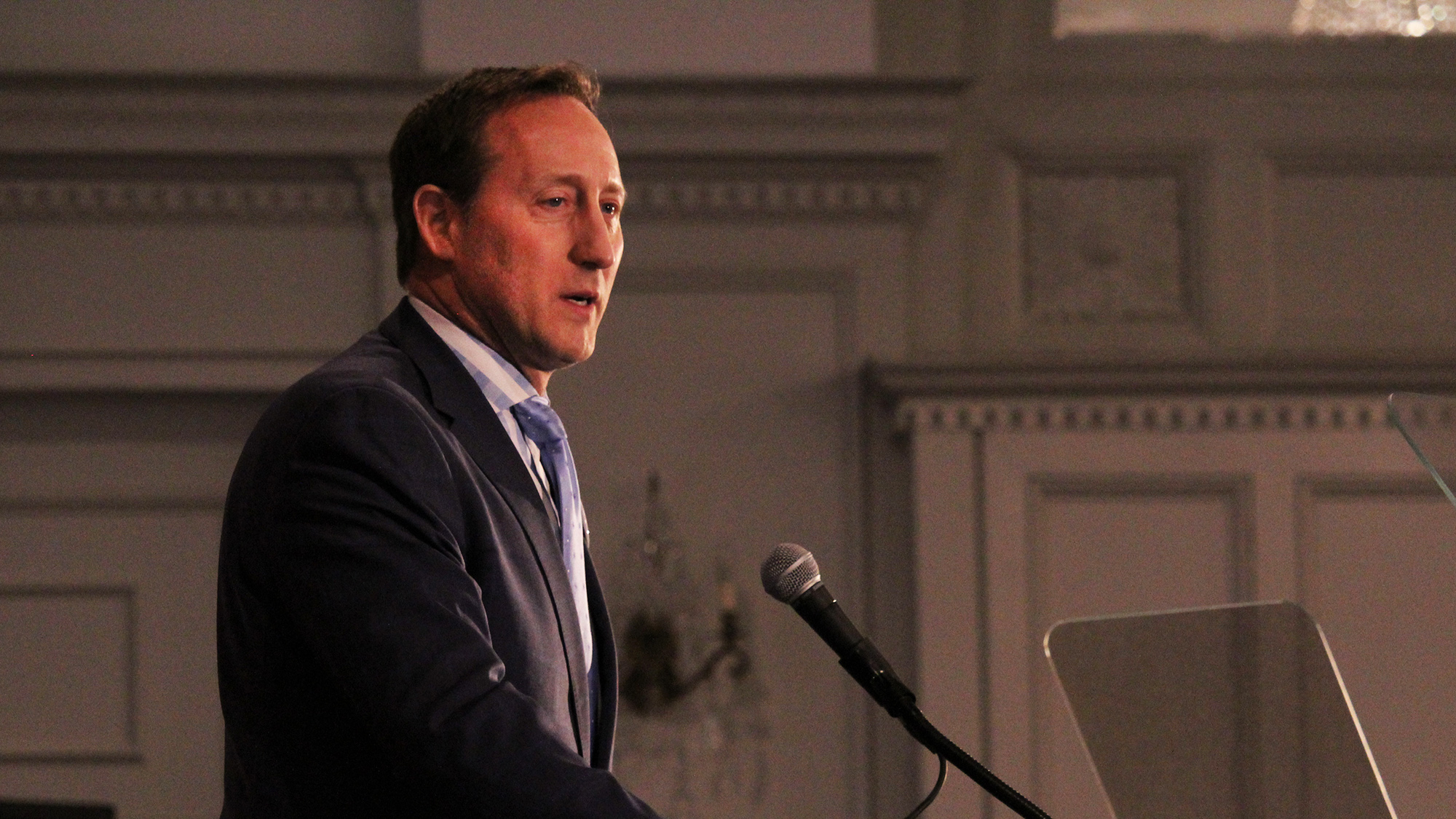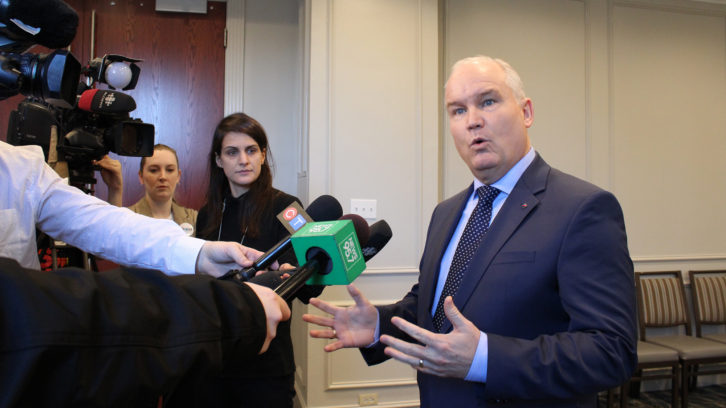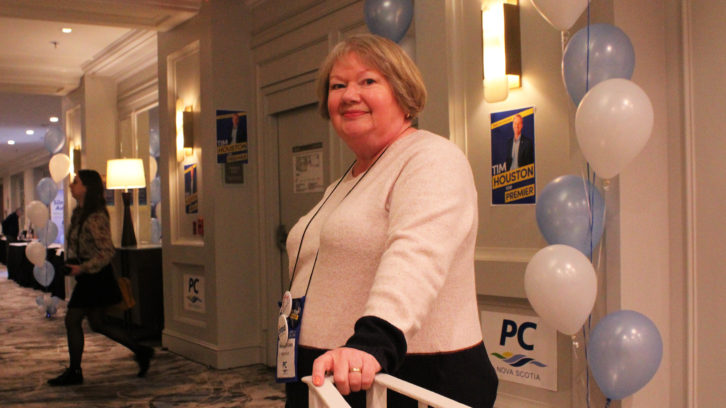Prospective candidates pitch visions for federal Conservative party
Unity, energy and regionalism emerge as main talking points at Nova Scotia PC AGM

caption
Peter MacKay addresses the crowd during Saturday's Conservative federal leadership forum.Five Conservatives vying for the federal leadership made their cases to the party faithful at the Progressive Conservative Party of Nova Scotia’s annual general meeting on Saturday.
Peter MacKay, Erin O’Toole, Marilyn Gladu, Rick Peterson and Rudy Husny each had 15 minutes to present their vision for the Conservatives to members whose votes will decide the leadership.
While party unity was a big talking point for all prospective candidates, Nova Scotia-born Peter MacKay honed in on the accomplishments and needs of the Atlantic provinces, which he said are underrepresented in Ottawa.
“Alberta and Quebec often feel alienated, our region under this government is simply forgotten,” said MacKay at the Westin Hotel in downtown Halifax.
With the other candidates hailing from elsewhere in the country, they made sure to acknowledge feelings of Atlantic neglect while also speaking to the jobs they hope to bring to the Atlantic provinces.
Party unity emerged as a main theme among the candidates’ speeches.
“We need to turn the page on all divisions in our party,” said Husny, a longtime Conservative from Quebec who ran twice in the Outremont district of Montreal and lost both times.
This leadership race comes after Andrew Scheer announced his resignation as leader of the Conservative Party of Canada in December, accused of using party funds to pay for his children’s education.
Nearly all candidates made the point that unifying under one vision will give them a better chance at beating the Liberals.
Dropping old debates like abortion and LGBTQ rights is one way many candidates hope to not only unify the party but conservatives across the country.
“I am going to be standing up for those who are pro-life and those who are pro-choice, those who want to march in a Pride parade and those who don’t,” said Gladu.
Peterson, who came 12th out of 14 candidates for federal leadership in 2017, echoed those sentiments, saying if he is chosen as leader he will not reopen the debate on abortion.
While he was federal leader, Scheer came under fire for voting for pro-life legislation as a member of Parliament.
As for the environment, nearly every prospective candidate said they would introduce policy to lower carbon emissions. Yet they made it clear they do not believe Canada deserves much of the blame when it comes to global emissions.
“Send that lower emission natural gas to places like India, Pakistan and China then we are actually lowering greenhouse gas emissions,” said MacKay. “Because we are not the problem.”

caption
Erin O’Toole speaks to media after prospective candidates addressed Conservative party members.O’Toole said jobs in the gas industry would benefit Atlantic Canadians, especially as “Trudeau let Energy East slip away.” This topic was also touched on by Gladu, MP for Sarnia-Lambton in Ontario, who said the country needs a coast-to-coast pipeline.
Polls suggest Canadians support the building of pipelines, but they’ve become a divisive topic. Many Indigenous groups who live in pipelines’ paths oppose their construction.
Minority to majority?
In recent years, Nova Scotians have elected more Liberals than Conservatives at both the provincial and federal level. Chris d’Entremont, MP for West Nova, is the only Conservative from Nova Scotia of 11 MPs.
Conservatives hold 121 out of 338 seats in the House of Commons. They have not formed government since Stephen Harper’s defeat to Trudeau in 2015.
But many at Saturday’s event seemed hopeful.

caption
Mary Ann McGrath held office as MLA in Bedford. She says she’s impressed with the prospective candidates so far.“We have five really good dynamic candidates with really great ideas. This is a good race,” said Mary Ann McGrath, a former Conservative MLA in Bedford, in an interview.
She wants a leader who can unite Canada.
“Right now, we’re a very divided country, and that’s got to change,” she said.
Louise Carbert, a political science professor at Dalhousie University, said regional divides aren’t as sharply defined within the Conservative party. But she said regional representation within the party could be a factor in who’s voted leader.
“I do think there’s a feeling the next person can’t be from Western Canada. There has to be more balance among the party, and that’s the appeal for Peter MacKay,” Carbert said in an interview Monday.
MacKay leads preliminary polls
MacKay’s Nova Scotian political ties stretch back to 1997, as MP for Pictou-Antigonish-Guysborough.
He went on to become leader of the Progressive Conservative Party of Canada, uniting with Stephen Harper’s Canadian Alliance in 2003 to form the modern Conservative Party of Canada.
A Feb 3. survey from the Canadian polling company Leger suggests MacKay is a clear frontrunner in the race so far, with 28 per cent support among those polled, though many responded as undecided.
MacKay has been under fire for running attack ads targeting Prime Minister Justin Trudeau in recent weeks — ads he has since apologized for.
Only MacKay and O’Toole have met the fundraising benchmark of $25,000 and 1,000 signatures from across Canada to become official candidates.
Prospective candidates like Gladu, Peterson and Husny had to pay $1,000 to the Progressive Conservative Party of Nova Scotia to speak at the event.
Candidates have until Feb. 27 to raise the funds and support needed to enter the leadership race as an official candidate, which would require a much bigger investment of $300,000 and 3,000 signatures from across Canada.
The Conservative Party of Canada will vote in a new federal leader on July 27.
About the author

Sam Gillett
Sam calls Orillia, Ontario home. When he's not chasing Signal stories, he can be found sketching in cafes, watching soccer or following news...
Olivia Malley
Hailing from Dartmouth Nova Scotia, Olivia is a journalist passionate about the HRM. Outside of reporting she enjoys singing in King's a capella...

C
Catherine